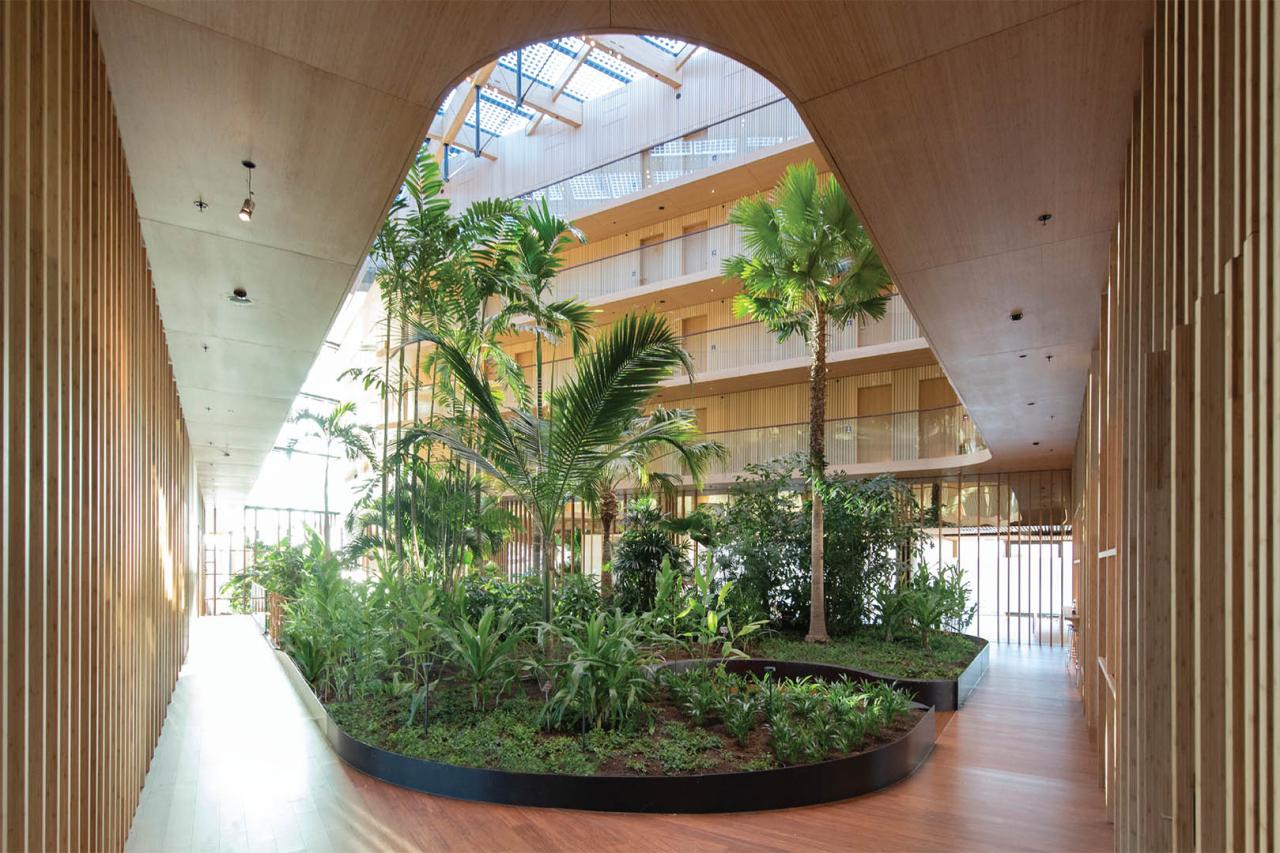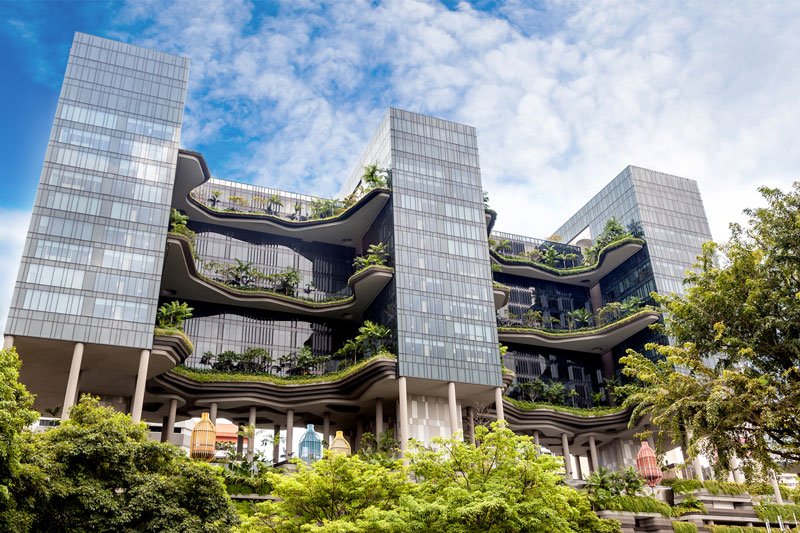The global hospitality industry is experiencing a profound transformation. What was once a niche concern for a handful of eco-conscious travelers, sustainable hotels, are now rapidly gaining global traction, moving from the periphery to the very forefront of traveler preference and industry innovation. It’s no longer enough for a hotel to offer comfort and convenience; today’s discerning guest actively seeks accommodations that align with their values, prioritizing genuine environmental responsibility, ethical practices, and positive community impact.
This comprehensive article will delve into the compelling reasons behind the explosive growth of sustainable hotels, dissecting their core operational principles, highlighting the tangible benefits they offer guests and the planet, and exploring how this paradigm shift is reshaping the future of the entire travel sector. Prepare to discover how hospitality is evolving to protect our planet for generations to come.
The Rise of Conscious Accommodation

For decades, the environmental footprint of the hotel industry was largely overlooked. Energy-intensive operations, significant water consumption, and extensive waste generation were simply part of the business. However, a confluence of factors – heightened environmental awareness, evolving consumer demands, and technological advancements – has catalyzed a dramatic change.
Today, a “sustainable hotel” is far more than just a property with recycling bins. It represents a holistic commitment to minimizing negative environmental impacts, conserving natural resources, supporting local communities, and fostering a healthier planet. These establishments are demonstrating that luxurious experiences and robust profitability can coexist harmoniously with deep ecological and social responsibility. It’s about offering a guilt-free stay, where comfort doesn’t come at the cost of the environment or the well-being of local populations. This shift isn’t just a marketing ploy; it’s a fundamental rethinking of hospitality operations, from conception to daily management.
Why Sustainable Hotels Are Booming Globally
Several powerful forces are driving the widespread adoption and increasing demand for sustainable hotel options:
A. Heightened Environmental Awareness and Climate Concern:
There’s an unprecedented global understanding of climate change, resource depletion, and pollution. Travelers are increasingly conscious of their personal impact and actively seek ways to reduce their carbon footprint, even while on vacation. Choosing a sustainable hotel is a tangible way to align their travel choices with their environmental values, contributing to a solution rather than the problem.
B. The Ethical and Conscious Consumer Movement:
Modern consumers, particularly younger generations, are more informed and ethically driven than ever before. They demand transparency from brands and prefer to support businesses that demonstrate a genuine commitment to social and environmental responsibility. This translates into a willingness to seek out and often pay a premium for sustainable accommodations.
C. Growing Desire for Authentic and Meaningful Experiences:
Travelers are moving beyond superficial sightseeing to seek deeper, more meaningful connections with the places they visit. Sustainable hotels often facilitate this by engaging with local communities, showcasing regional culture, and providing opportunities for guests to learn about local conservation efforts, leading to a richer and more authentic experience.
D. Technological Advancements in Green Building and Operations:
Innovations in renewable energy (solar, wind), smart building management systems, water recycling technologies, and energy-efficient appliances have made it increasingly feasible and cost-effective for hotels to implement sustainable practices without compromising guest comfort. These technologies make eco-friendly operations more efficient and scalable.
E. Corporate Social Responsibility (CSR) and Business Travel:
Many corporations have robust CSR policies and prefer to book sustainable hotels for their business travelers, conferences, and events. This significant segment of the market provides a strong incentive for hotels to invest in sustainability certifications and practices. A company’s choice of hotel can reflect its own commitment to ESG (Environmental, Social, Governance) principles.
F. Long-Term Cost Savings and Operational Efficiency:
While initial investments in sustainable infrastructure can be high, they often lead to significant long-term operational cost savings through reduced energy consumption, lower water bills, and minimized waste disposal fees. This financial benefit makes sustainability an attractive business proposition beyond just ethical considerations.
G. Positive Brand Reputation and Marketing Advantage:
Hotels with genuine sustainable practices enjoy an enhanced brand image, differentiating them in a crowded market. This positive reputation attracts eco-conscious travelers, boosts loyalty, and generates positive word-of-mouth and media coverage, creating a powerful marketing advantage.
H. Employee Attraction and Retention:
Employees, especially younger generations, are increasingly seeking workplaces that align with their personal values. Hotels committed to sustainability often attract more passionate and dedicated staff, leading to higher morale, lower turnover, and a more engaged workforce.
I. Government Regulations and Incentives:
A growing number of governments and local authorities are implementing regulations or offering incentives (e.g., tax breaks, grants) for hotels that adopt sustainable practices, further encouraging the industry to go green. This creates a supportive policy environment for sustainable development.
The Cornerstones of a Sustainable Hotel
A truly sustainable hotel integrates environmental, social, and economic responsibility into every facet of its operation. It’s a holistic commitment, not just a few superficial gestures.
Core Principles of Sustainable Hotel Operations
A. Energy Efficiency and Renewable Energy Integration:
Sustainable hotels drastically reduce their energy consumption through smart lighting (LEDs, motion sensors), efficient HVAC systems, and optimal insulation. Crucially, they invest in renewable energy sources like solar panels, wind turbines, or geothermal systems to power their operations, aiming for net-zero or even net-positive energy use.
B. Water Conservation and Management:
Minimizing water usage is paramount. This includes low-flow fixtures, dual-flush toilets, smart irrigation systems for landscaping, and advanced greywater recycling for non-potable uses. Some hotels even have their own water treatment plants. Guests are often encouraged to reuse towels and linens through clear signage.
C. Waste Reduction and Diversion:
A comprehensive waste management program goes beyond simple recycling. It includes composting organic waste, eliminating single-use plastics entirely (e.g., refillable amenities, filtered water stations), reducing food waste through careful procurement, and upcycling materials where possible. The goal is to send as little as possible to landfills.
D. Sustainable Sourcing and Supply Chains:
Hotels prioritize sourcing locally and ethically. This applies to food (farm-to-table initiatives), building materials (recycled, rapidly renewable, non-toxic), cleaning products (eco-friendly, biodegradable), and amenities. They scrutinize their entire supply chain to ensure responsible production and fair labor practices.
E. Biodiversity Protection and Landscaping:
When located in natural areas, sustainable hotels minimize disturbance to ecosystems during construction and operation. They use native, drought-resistant plants for landscaping, create wildlife habitats, and actively engage in conservation efforts, protecting local flora and fauna.
F. Local Community Engagement and Economic Benefit:
This is a critical social pillar. Hotels prioritize hiring and training local staff, pay fair wages, and actively support local businesses (e.g., artisans, tour operators). They often invest in local community development projects like schools, healthcare, or infrastructure, fostering genuine partnerships.
G. Cultural Preservation and Authentic Experiences:
Sustainable hotels actively celebrate and preserve local culture. They may incorporate traditional architectural elements, offer authentic cultural activities, employ local performers, and educate guests about local customs and heritage, ensuring that tourism enhances, rather than dilutes, local identity.
H. Green Building Design and Construction:
New constructions or renovations adhere to green building standards (e.g., LEED certification). This involves site selection that minimizes ecological impact, use of non-toxic materials, maximizing natural light and ventilation, and minimizing construction waste.
I. Responsible Transportation:
While not always under direct hotel control, many sustainable hotels encourage guests to use public transport, provide electric vehicle charging stations, or offer eco-friendly shuttle services, reducing the transportation footprint of their visitors.
J. Guest Education and Empowerment:
Sustainable hotels actively inform guests about their environmental initiatives and encourage participation in conservation efforts (e.g., towel reuse programs, recycling, local tour options). Clear communication empowers guests to make responsible choices during their stay.
The Ripple Effect for Guests and the Planet

The advantages of choosing and operating sustainable hotels extend far beyond ethical satisfaction, creating a positive impact that resonates broadly.
Advantages of the Sustainable Hotel Model
A. Reduced Environmental Footprint:
By minimizing energy, water, and waste, sustainable hotels directly contribute to mitigating climate change, conserving precious resources, and reducing pollution, helping to preserve natural ecosystems.
B. Enhanced Guest Experience:
Guests often report a deeper sense of well-being and connection when staying in sustainable hotels. The fresh air, natural light, healthy food, and serene environments contribute to a more restorative and meaningful stay, often free from the guilt associated with conventional luxury.
C. Economic Benefits for Local Communities:
Direct local sourcing, employment, and community investment ensure that tourism revenue circulates within the region, creating jobs, empowering local entrepreneurs, and improving livelihoods, leading to more equitable development.
D. Improved Health and Well-being for Guests and Staff:
Reduced exposure to harmful chemicals (from cleaning products, building materials), improved indoor air quality, and access to fresh, locally sourced food contribute to a healthier environment for both guests and hotel staff.
E. Stronger Brand Loyalty and Positive Reputation:
Hotels that genuinely commit to sustainability build trust and loyalty among a growing segment of conscious travelers. This positive reputation often leads to repeat bookings, favorable reviews, and powerful word-of-mouth marketing.
F. Long-Term Cost Savings for Operations:
Initial investments in green technologies and practices pay off over time through significant reductions in utility bills (electricity, water) and waste disposal costs, enhancing the hotel’s financial viability and resilience.
G. Innovation and Industry Leadership:
Sustainable hotels often become pioneers in adopting new green technologies and practices, setting benchmarks for the rest of the industry and driving broader systemic change towards more responsible tourism.
H. Resilience to Future Challenges:
Hotels with robust sustainable practices are often more resilient to future challenges such as resource scarcity, rising energy costs, and stricter environmental regulations, ensuring long-term operational stability.
The Future of Hospitality
The current traction gained by sustainable hotels is just the beginning. This segment is poised to drive the future of the entire hospitality industry, with innovation and responsibility at its core.
Emerging Trends in Sustainable Hospitality
A. Net-Positive and Regenerative Hotels:
Beyond simply minimizing harm, future hotels will aim to be net-positive, actively contributing more to the environment and community than they consume. This includes restoring ecosystems, generating surplus renewable energy, and having a profoundly positive social impact.
B. Hyper-Local Integration:
An even deeper integration with local communities will emerge, with hotels serving as community hubs, offering local products, services, and experiences that are truly intertwined with the destination’s fabric, blurring the lines between guest and local life.
C. Advanced Smart Technology for Sustainability:
AI, IoT sensors, and big data analytics will optimize every aspect of hotel operations for efficiency, from predictive energy management and real-time waste reduction to personalized guest experiences that minimize resource use.
D. Circular Economy Models:
Hotels will increasingly adopt full circular economy principles, designing out waste and pollution, keeping products and materials in use for as long as possible, and regenerating natural systems. This could involve partnerships for upcycling amenities or closed-loop systems for food waste.
E. Transparent Impact Reporting:
Guests will demand highly transparent and verifiable impact reports, detailing a hotel’s energy consumption, water usage, waste diversion rates, and local economic contributions. Certifications will become even more rigorous and specialized.
F. Focus on Bio-Architecture and Biophilic Design:
The integration of nature into architectural design will become standard, with buildings that not only reduce environmental impact but actively improve indoor air quality, connect guests with nature, and enhance well-being through natural light, ventilation, and living elements.
G. Water Independence and Desalination:
In water-stressed regions, hotels will increasingly invest in advanced on-site water treatment, desalination, and atmospheric water generation technologies to become largely self-sufficient in water supply.
Conclusion
The rapid global traction gained by sustainable hotels marks a pivotal moment in the evolution of the travel industry. It reflects a profound shift in consumer values and a growing recognition that true luxury is intertwined with responsibility – responsibility to the planet, to local communities, and to future generations. These innovative properties are proving that profitability and environmental stewardship are not mutually exclusive but, in fact, mutually reinforcing.
By choosing sustainable accommodations, travelers are doing more than simply booking a room; they are actively participating in a movement that champions ethical practices, preserves natural beauty, and supports equitable development. As technology advances and awareness deepens, sustainable hotels will undoubtedly continue to lead the way, setting a new gold standard for hospitality worldwide. The journey towards a greener, more responsible travel future is well underway, inviting everyone to be a part of it.













